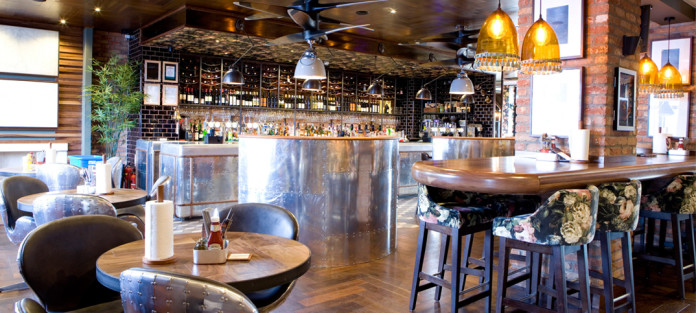Conventional tenancies and leases are becoming less attractive to pub owners. As a result, they’re increasingly using new models of direct management, writes Phil Mellows.
You might have noticed at the end of last year a kerfuffle around parliament’s decision to add against the government’s wishes a statutory market rent option (MRO) to lease and tenancy agreements with the larger pub companies.
While this won’t, as some seemed to conclude, mean the end of the tie that forces tenants to buy beer and other goods through their landlords, it does make conventional tenancies and leases less attractive models as far as pub owners are concerned. One of the likely consequences of that will be to cut the tenant out of the equation altogether in favour of direct management.
Writing in licensed property agent Christie & Co’s ‘Business Outlook’ report in January, head of pubs Neil Morgan predicted that the number of managed houses in the UK will grow from 9,200 to 12,000 – about a quarter of the total.
He also made it clear, however, that MRO will only be accelerating a process that’s already under way.
Indeed, even before parliament made its decision, a number of pub operators announced a turn to management. It’s no mere coincidence, although the moves are on different scales.
Enterprise Inns, the largest leased and tenanted group, has set up a vehicle called the Bermondsey Pub Company to run a managed estate. About 15 pubs have already been converted, and there will be 50 by the end of the year. Group commercial director Paul Harbottle has hinted that up to 500 pubs could become managed, which is 10% of the entire estate.
Harvey’s Brewery in Sussex has said it will convert half its 48-strong estate to managed in reaction to the compliance costs involved in the statutory code – even though it’s too small to be caught by the MRO.
Bateman’s Brewery in Lincolnshire is aiming for 15 to 20 managed houses over the next five years – a third of its estate. Another third will be run under franchise, which is a kind of halfway house between managed and tenanted.
Bedford-based Charles Wells, which exited managed pubs not so long ago in 2007, has started opening them again. It has the Salisbury Arms (a pilot project in Cambridge) and three carveries it inherited from Orchid Group when the latter was broken up; over the next three years, it also plans to have five or six high-end, high-turnover food-led outlets operating under the name Apostrophe Pubs.
Frederic Robinson of Stockport came out of managed houses in 2006 and is now back in, targeting five over the next 12 months, and Oxfordshire operator Brakspear has so far opened three.
It seems a pattern is developing. But why?
Operating costs have risen steadily. In the recent past, pub owners generally chose to transfer those costs onto the tenant, taking their cut of the profit through rent and the margin on the beer they sell them.
But there comes a point where individual tenants can’t afford to pay those costs and also invest in the business to make sure it can continue to attract an ever-more-demanding customer.
Many companies helped their licensees through the recession by freezing rents and heaping on extra support, but there comes a point when the benefits of a tenanted model are squeezed to the point where you might as well run the pub yourself.
Charles Wells, for instance, introduced a system called Passport to Profit, which managing director Peter Wells says gives some of the company’s tenants “support that’s almost at management levels”.
“So moving to management is a natural progression for us – we can surely do it for ourselves and take the retail profit.”
William Robinson, joint managing director of Frederic Robinson, describes the brewer’s new managed houses as “businesses that require a lot of capital – six-figure sums”.
“Certain pubs require a lot of expenditure and management resource that a tenant probably couldn’t find. Demands on operators and the demands from the consumer have gone up so much, and we can support these businesses better under management.”
And as Bateman’s managing director Stuart Bateman points out, “We can have more control over running the business to ensure it is profitable and the standards are in line with the Bateman’s brand.
“It’s a more effective way of maximising a business. We know the plan will be delivered.”
There is a cap, though, on the number of managed houses the pub industry can sustain. It’s generally reckoned that to be worth the investment, a managed pub has to be taking close to £20,000 a week. In comparison, the £8,000 threshold Enterprise Inns is talking about seems recklessly modest.
But the move to managed should perhaps be seen as part of a more complex trend in which pubcos and brewers are actively exploring a range of different models that can produce the best possible return on their pub assets.
Also increasingly popular is the ‘franchise-style agreement’, as it’s usually called, which covers a variety of arrangements in which the pub owner has, to put it crudely, a bigger say in how the tenant’s business is run.
We are, arguably, in the midst of another significant moment in the long evolution of the pub.








